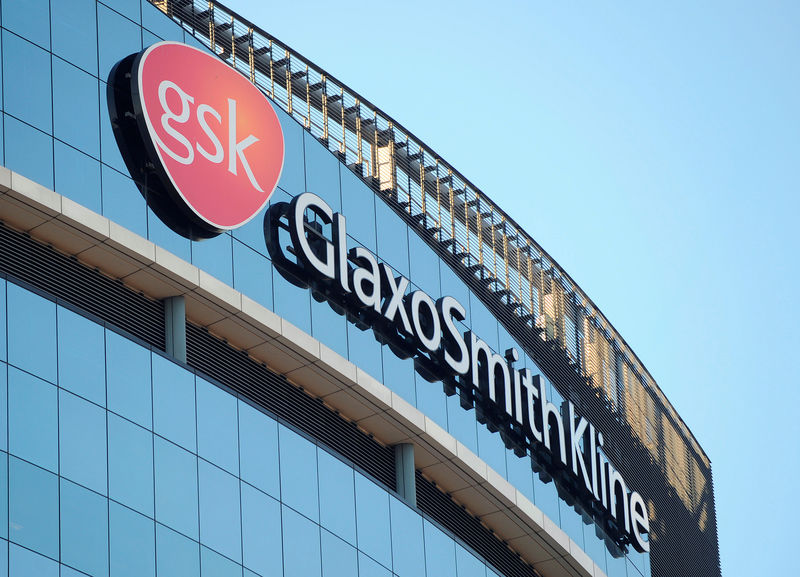By Ben Hirschler
LONDON (Reuters) - GlaxoSmithKline's (L:GSK) simple two-drug treatment for HIV works as well as standard triple therapy, even in people with relatively high levels of the virus that causes AIDS, clinical study results presented on Tuesday showed.
Doctors and investors alike have been anxious to see how the experimental combination of dolutegravir and lamivudine, also known as 3TC, would stack up against highly effective triple drugs championed by arch-rival Gilead Sciences (O:GILD).
GSK's majority-owned ViiV Healthcare unit, which is responsible for HIV medicine, had reported success from the two so-called GEMINI studies last month but details were only unveiled at the International AIDS Conference in Amsterdam.
Pedro Cahn, a veteran HIV researcher from Argentina who led the GEMINI studies, said the results showed it was possible get the efficacy of three drugs in a two-drug regimen.
After studying 1,400 patients for 48 weeks, researchers found 91 percent of patients taking dolutegravir and lamivudine had high levels of viral control versus 93 percent of those on three drugs. The difference was not statistically significant.
Rates of virologic failure, or inability to control HIV, were consistent at no more than 1 percent across all groups and no patients developed drug resistance.
Importantly, the results were also broadly consistent whether individuals had higher or lower starting levels of HIV in their blood, reassuring those who had worried the two-drug regimen might work less well in people with more virus.
"This is a new option for treatment," Cahn said. "The main reason for doing this is to reduce the amount of drug burden when patients are on life-long treatment."
GSK is betting that a shift to using two drugs rather than three will boost its sales by offering patients a therapy with fewer potentially toxic side effects. A two-drug regimen should also be cheaper, since lamivudine is an off-patent generic.
ViiV has set itself a goal of overtaking Gilead in the $26 billion-a-year HIV market by the mid-2020s - an ambitious target, since Gilead currently has a market share of 52 percent against GSK's 22 percent.
Linda-Gail Bekker, an HIV expert at the University of Cape Town, who was not involved in the studies, said two-drug treatment was attractive in principle.
"Simplification of treatment is what people want to see, both to reduce costs and to reduce side effects," she told Reuters.
Nearly half of all HIV patients in the profitable markets of North America and Europe are now over 50 and are vulnerable to side effects from the drugs that keep them alive, making tolerability more important than in the past.
But a key question remains the durability of the treatment, given that many patients will be on HIV medication for decades. So while some doctors will be assured by the 48-week data, others may want to see two- or three-year results.
The central worry is the emergence of drug resistance. While no resistance was seen in the 48-week trials, there was a case in an earlier study, although GSK believes this was likely down to failure to take the drugs properly.
Regulators are also investigating if dolutegravir might be linked to birth defects, although there is no evidence proving a connection at this stage.

ViiV, in which Pfizer (N:PFE) and Shionogi (T:4507) have small stakes, plans regulatory submissions for the two-drug combination later this year. If approved, the new combination is expected to be much more widely used than another GSK two-drug regimen called Juluca.